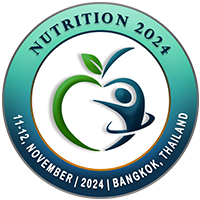
Hector Nava
National Institute of Respiratory Diseases, MexicoTitle: Malnutrition: an overview of bioethics
Abstract
Malnutrition is a universal public health problem in both children and adults globally. It is not only a public health concern, but it is an impediment to global poverty eradication, productivity, and economic growth. Malnutrition is a public health issue fraught with a strong ethical component.
The idea that “you are what you eat” has some truth to it: Our food choices are often intertwined in our beliefs and values, our relationship to where the food comes from, and our larger connection with an increasingly globalized world. Nutritional transition is an important public health issue in developing countries, where the switch from undernutrition to overnutrition/obesity is rapidly occurring, often within two or three generations. Such transition is related to changes in lifestyle, with people having more access to western high-caloric diets. Hypercaloric intake is characterized by high-carbohydrate and fat consumption, both leading to obesity. It is known that obesity and maternal overnutrition create changes in the uterine milieu during pregnancy leading to developmental alterations and defects in organ function and metabolism in the offspring.
Fetal programming describes the fetus’s response to the intrauterine environment or the process by which it is affected by this environment. During this period of development, fetal programming can produce structural and functional changes in cells, tissues, and organ systems, with critical long-term consequences for future health and disease susceptibility. It is important to mention that the implementation of adequate maternal nutrition during the pre-conception period and during pregnancy can be one of the main health promotion strategies. If this finally occurs, maternal nutrition could be used as a means to prevent chronic non-communicable diseases and improve the health of several generations.
Biography
Hector Nava has completed a Biological Pharmaceutical Chemistry Degree. Faculty of Chemistry. UNAM, Mexico City. Pharmacology laboratory. Research unit. National Institute of Respiratory Diseases (INER). Research Lines: Cellular Respiration, Cellular Wear and Metabolism. Participation in the project to carry out preclinical studies of the mixture of ZYD1 plants. I have participated in various research projects, which have been published in various journals. Likewise, I have attended conferences with oral poster participation.

